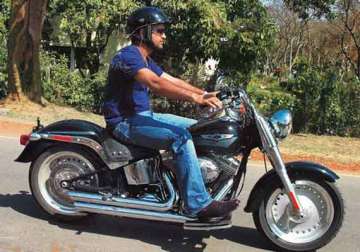New Delhi: Mahendra Singh Dhoni, said to be the world's richest cricketer, once came "dirt cheap" as a brand ambassador for a Japanese company but the deal failed because the multinational, one of the world's biggest producer of motorcycles, insisted on a "global star" and were not too familiar then with Dhoni's name and popularity.
"For Yamaha, Wayne Roonie but not Dhoni was a global star," Gullu Sen, former vice chairman, Dentsu India, told guests at the launch of “Mahi”, a book on the Indian cricket captain, at the Olive Bar & Kitchen Tuesday evening.
Sen said the Dhoni loss was realised by both Yamaha and Dentsu years later when he became India's most saleable and richest sportstar and started charging very high rates for advertising.
"He had come to us dirt cheap, we could have signed him up for just Rs 200,000 for a year. If we had done it, we would have invested in a cricketer who eventually became India's captain. It is important for an advertising agency to explain to its clients the importance of investing in young stars who have the potential to strike big," said Sen.
Agreed Venkatesh Kini, head of Coca Cola India, who said the world's largest beverage brand has routinely invested in young talent. "And eventually, they have become stars. That way you can retain them. Else, you have to shell out loads of money," said Kini.
Former Indian skipper Bishen Singh Bedi, one of the panelists, welcomed the new trend of companies investing heavily in sports stars. "During our days, we got Rs 250 for playing a cricket match (Rs 50 was deducted if the Test match finished in four days) and there were very few brands who looked to cricketers for advertising. The canvas has now become bigger, now cricketers are on the rolls and get paid even if they are not playing."
Published by Delhi-based Roli Books, “Mahi: The Story of India's Most Successful Cricket Captain”, has been written by journalist Shantanu Guha Ray.
